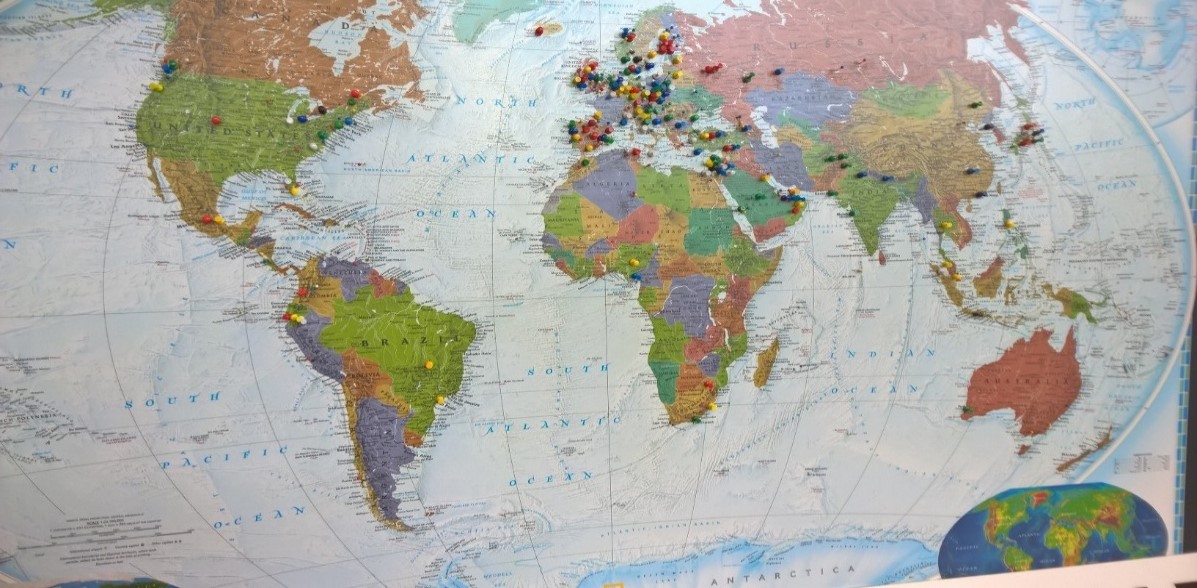This conference is a large international education conference that provides an opportunity to share projects and practice related to teaching and learning methodologies, experiences in relation to technology and educational innovation projects. The participants come from a range of countries as demonstrated by the pins in the map.
Attendees range from those involved in primary education through to higher education. The conference is over two days and started with two key note speakers. The first was focused on improving education for females in India and was presented by Safeena Husain. This keynote focused on the fact there in India there are still today 3 million girls who do not get schooling leading to only 44% of females being literate. This gender inequality persists and Safeena works with people to change this. The key is to find a champion in each village preferably 18 – 35 years old and to give them mentorship and leadership training and they work experience and recognition. The mentoring is given every 2 weeks and there is 9 days training per year. These champions then help educate the girls in the village. This has been a successful approach so far.
The second key note was given by Alan November and was called the transformational six.
This keynote focused on how students and others use the web and the things we don’t know. He asked the question did the assessment build capacity for critical thinking on the Web? Most students do a search and look at the front screen only to validate information. However there is a lot of other information that is missed. On an internet search you get a country code which is important when researching some subjects in terms of what might not be accessed. In Google you can find a site that gives the country code information. All education sites have edu.ac. The information students need to think deeply is not always available. The internet has many versions of the truth and so primary sources are really important. Wikipedia can be very useful for background information. Google sites are most often used but others exist such as archive.org and the internet is backed up every few months keeping things as they were. This session was enlightening in terms of what people don’t know about using the web.
Following the two key note sessions the conference was then focused on parallel sessions. There were eight sessions to choose from in each time slot. The topics varied and included for example collaborative learning, tutoring and coaching, learning spaces and the next generation classrooms and professional development for teachers. There was a good choice of sessions and the paper quality was very good. There were also two poster sessions. The conference enables all who present a paper to submit this for publication. For information about the conference here is the link to the conference website https://iated.org/inted/ and here is the link to my conference blog with more details about individual sessions https://blogs.city.ac.uk/pamsconferences/ .



